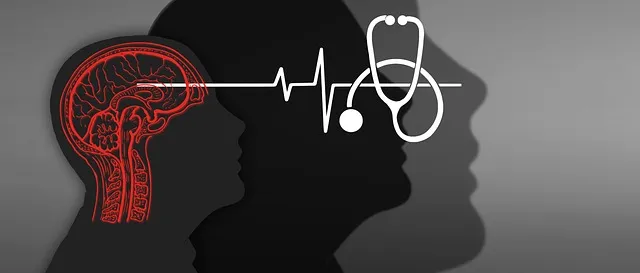Westminster Kaiser Permanente's mental health services, backed by positive reviews, emphasizes comprehensive assessment and personalized self-care routines for improved mental wellness. This involves identifying triggers through reflective practices, adopting self-awareness strategies, and incorporating tailored activities like mindfulness, physical exercise, and nutrition. Regular tracking of progress ensures adaptability in routines, fostering long-term well-being and resilience.
At Westminster Kaiser Permanente, we believe that prioritizing mental wellness is paramount for a fulfilling life. This article guides you through crafting a personalized self-care routine, designed to enhance your mental well-being. We’ll explore strategies from understanding your unique needs through assessment to incorporating mindfulness, physical activity, and nutrition. Discover how to track progress and adjust your routine for long-term mental health support, inspired by expert practices at our renowned mental health center.
- Understanding Your Mental Wellness Needs: A Guide to Assessment
- Creating a Personalized Self-Care Routine: Strategies and Practices
- Incorporating Mindfulness and Relaxation Techniques for Daily Peace
- The Role of Physical Activity and Nutrition in Mental Health Support
- Tracking Progress and Adjusting Your Routine: Cultivating Long-Term Wellness
Understanding Your Mental Wellness Needs: A Guide to Assessment

Understanding your mental wellness needs is a crucial first step in developing a self-care routine that works for you. Just as each individual has unique physical health requirements, mental health care should be personalized too. This involves assessing your current state of mind and identifying areas where you might be experiencing strain or imbalance.
At the Westminster Kaiser Permanente mental health center, reviews highlight their comprehensive approach to assessment, which often includes discussions about stress levels, sleep patterns, mood fluctuations, and relationships. They guide individuals through a process that may involve keeping a journal, reflecting on past experiences, and exploring triggers for anxiety or depression. Additionally, they emphasize the importance of self-awareness, suggesting compassion cultivation practices and empathy building strategies as preventive measures against burnout.
Creating a Personalized Self-Care Routine: Strategies and Practices

Creating a personalized self-care routine is an essential step towards enhancing your mental wellness. At Westminster Kaiser Permanente mental health center reviews, experts emphasize that self-care isn’t one-size-fits-all; it’s about identifying practices that resonate with your unique needs and lifestyle. Start by evaluating your daily habits and listening to your body’s signals. Incorporate a mix of physical activities like yoga or walking, mindfulness exercises such as meditation or deep breathing, and creative outlets like journaling or painting. These self-care practices can help reduce stress, improve mood, and foster a sense of balance.
Consider setting aside dedicated time for relaxation and enjoyment each day. This could be as simple as reading a book, listening to calming music, or engaging in a hobby you love. By integrating these self-care routines into your schedule, you’re not just investing in your mental health; you’re also developing valuable coping skills that can support you during challenging times. Remember, consistency is key—sticking to your personalized routine will help you cultivate resilience and overall well-being.
Incorporating Mindfulness and Relaxation Techniques for Daily Peace

Incorporating mindfulness and relaxation techniques into your daily routine can significantly contribute to achieving a state of inner peace, a vital aspect often overlooked in mental wellness self-care routines. The Westminster Kaiser Permanente mental health center reviews consistently highlight the benefits of integrating practices such as meditation, deep breathing exercises, and yoga. These activities not only promote relaxation but also foster resilience against stress and anxiety, making them essential components for maintaining good mental health.
Mental Health Policy Analysis and Advocacy plays a crucial role in ensuring that individuals have access to evidence-based resources like mindfulness training. Moreover, Mental Wellness Coaching Programs Development can guide people in tailoring these practices to their unique needs. By dedicating even just a few minutes each day to relaxation techniques, individuals can prevent or manage conditions like depression, thereby enhancing overall quality of life.
The Role of Physical Activity and Nutrition in Mental Health Support

Physical activity and nutrition play a pivotal role in fostering mental health and wellness, as recognized by leading institutions like Westminster Kaiser Permanente mental health center reviews. Regular exercise has been scientifically proven to reduce symptoms of anxiety and depression while boosting overall mood. This effect is attributed to the release of endorphins, often referred to as ‘feel-good’ hormones, which create a sense of calm and well-being. Moreover, physical activity can serve as an effective stress management tool, helping individuals cope with daily pressures in a healthy manner.
Nutrition also significantly influences mental health. A balanced diet rich in essential vitamins, minerals, and omega-3 fatty acids is crucial for maintaining brain health and stable moods. Foods containing antioxidants, such as berries and leafy greens, have been linked to improved cognitive function and lower stress levels. Conversely, a diet high in processed sugars and unhealthy fats can negatively impact mental clarity and emotional stability. Thus, adopting nutritious eating habits is a powerful step towards enhancing one’s mental wellness, complementing the benefits of physical activity for a holistic approach to well-being, as endorsed by Stress Management Workshops Organization, Trauma Support Services, and Crisis Intervention Guidance resources.
Tracking Progress and Adjusting Your Routine: Cultivating Long-Term Wellness

Tracking your progress is an essential part of cultivating long-term mental wellness, especially when developing a self-care routine. Regularly reviewing your actions and emotions allows you to identify patterns and understand what strategies are truly beneficial. You can start by keeping a simple journal, noting down key moments, challenges faced, and how you overcame them. This practice provides valuable insights into your progress and helps in making informed adjustments to your self-care plan.
At the Westminster Kaiser Permanente mental health center, reviews highlight the importance of adaptability in self-care routines. Life is dynamic, and what works one day might not be as effective the next. Be open to adjusting your routine based on your evolving needs and circumstances. This flexibility ensures that your self-care remains relevant and supportive throughout your journey towards optimal mental wellness.
Developing a personalized mental wellness self-care routine, as guided by resources like the Westminster Kaiser Permanente mental health center reviews, is a transformative journey. By understanding your unique needs through assessment and incorporating diverse strategies from mindfulness to physical activity, you can cultivate long-term mental wellness. Regular tracking of progress allows for adjustments, ensuring your routine remains effective and aligned with your evolving self-care goals. Embrace these practices as tools for enhancing your overall well-being and fostering resilience in today’s challenging times.






